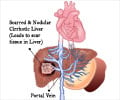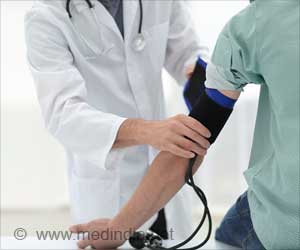Studies on rats with portal hypertension have indicated that an ultra low-dose aspirin has a normalizing effect of platelet-endothelial cell alterations and bleeding time.
Studies on rats with portal hypertension have indicated that an ultra low-dose aspirin has a normalizing effect of platelet-endothelial cell alterations and bleeding time, mediated by Cyclooxygenase 2 inhibition.
This study, performed by a team led by Professor C. Doutremepuich, is described in a research article to be published in the October 14 issue of the World Journal of Gastroenterology.Portal hypertension is a major complication of chronic liver disease, and bleeding is one of its most severe problems, leading often to death. Currently no treatment is used to modify the altered platelet activity observed in this pathology.
Ultra-low-dose aspirin has a prothrombotic effect that is the opposite of that observed with usual doses for the prevention of stroke or heart attack. The antithrombotic properties of low-dose aspirin are achieved by the inhibition of COX 1 in platelets. Aspirin is the most widely used antithrombotic agent. Previous research in rats has shown that the prothrombotic properties of ultra-low-dose aspirin are not mediated by platelets but by endothelial cells, and as such they have the potential of reversing the platelet-endothelial cell interaction alterations observed in portal hypertension.
In the view of the authors, to date no clear explanation has existed to elucidate the effect of such a small dose of aspirin, and no mechanism has been found to explain this contradictory action.
The prothrombotic effects of COX 2 inhibitors became evident in 2004 when one of the most widely accepted non-steroidal anti-inflammatory drugs was withdrawn from the market because of concerns about increased risk of heart attack and stroke associated with long-term, high-dosage use. Only aspirin has been demonstrated to have a prothrombotic effect at a very low dose.
In an elegant study design, including a model of in vivo Laser induced thrombosis in rats, bleeding time and prostanoid dosing, this research was performed by doctors from the Laboratory of Haematology of the Faculty of Pharmacy at the University of Bordeaux 2, France, Laboratoires Boiron and from the CEBBAD, Universidad Maimonides, Buenos Aires, Argentina.
Advertisement
Source-Eurekalert
GAN /J











